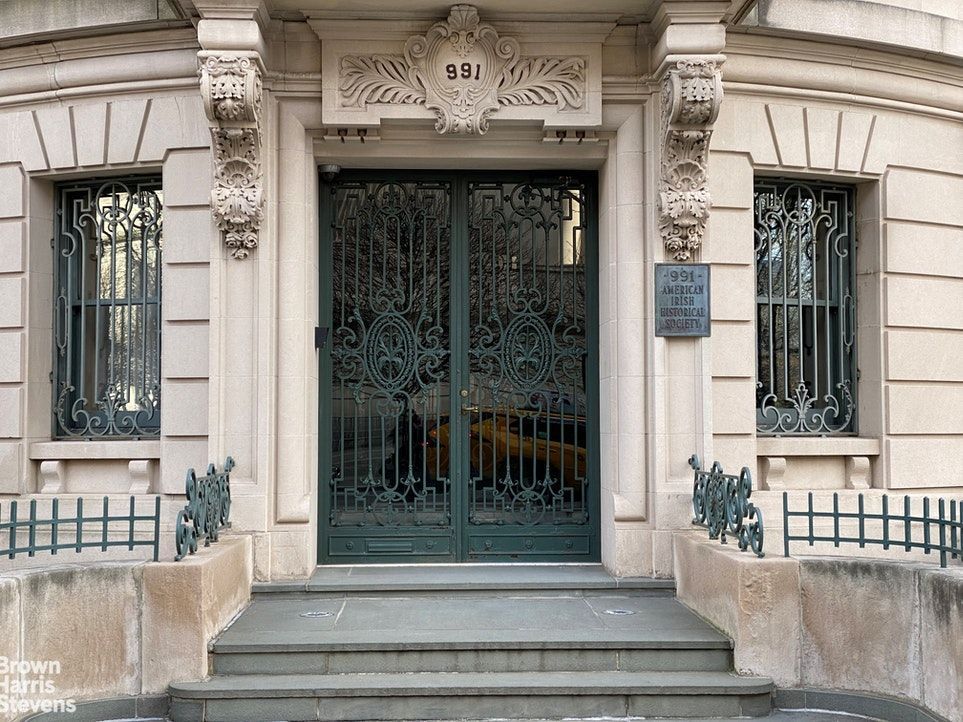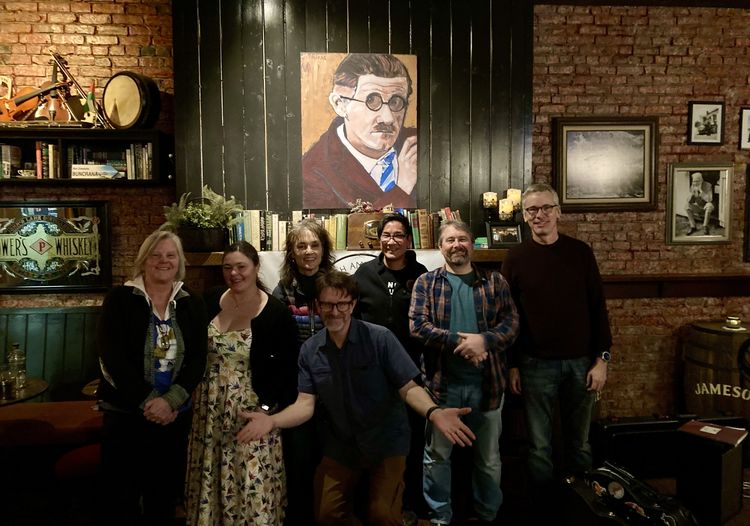The recent revelation by President General Michael Higgins of his agenda for the American Irish Historical Society is as regrettable as it is predictable.
The handpicked choice of the same board that steered the AIHS to the brink of ruin, the President General has expressed a supercilious disrespect for the very people the AIHS was founded to represent.
As the former chair of the AIHS, I joined with other members of the society to halt its chronic mismanagement and bring about long-overdue, desperately needed, change.
With their support, I’ve continued that campaign for the last two years. It’s in that light that I find it necessary to respond to the specious and offensive assertions made in the published comments by Mr. Higgins.
Though Mr. Higgins takes umbrage at the provenance of the information, he doesn’t dispute its accuracy. His appointment as President General is a fig leaf intended to provide cover to the self-serving elite that has so jealously guarded its control of the AIHS.
The transparency of this most-recent attempt to lend legitimacy to a leadership devoid of credibility resulted in the resignations of four board members.
The overriding goal of President General Higgins, and those who chose him, remains to liquidate and monetize 991 Fifth Avenue, the major asset of the AIHS.
Those who chose him are the same “patrician” “ascendancy” he references in his letter. It is clear that their agenda is only about the money, and always has been.
These would-be auctioneers know the price of the society’s headquarters, but not its value. Mr. Higgins wants to endow the society with the multi-million-dollar proceeds of the sale.
“All that money,” he writes, would not require any “compromising donor involvement.” He leaves unmentioned who exactly would control and manage “all that money.”
It seems obvious that without outside supervision, the same cohort who have turned the society to their own purposes would feast on the spoils. Unable or unwilling to recognize a fiduciary responsibility to long-term donors to the mission of the society, and its myriad supporters, Mr. Higgins imagines a leadership that answers only to itself.
But, as he should be aware, serious questions about the integrity of the society’s finances and practices are currently under diligent investigation by the Attorney General of the State of New York.
Mr. Higgins asserts that the iconic headquarters of the AIHS at 991 Fifth Avenue, across from the Metropolitan Museum of Art and in the heart of the City of New York, is “unsuitable as a scholarly location.”
It’s true that, as of late, not much scholarship has been done. That is a function of the society’s being turned into a private clubhouse. The imaginative use and redesign of interior spaces would provide ample room for scholars and researchers.
Perhaps President-General Higgins could consult with NYU’s Glucksman Ireland House, which has used its limited space to become a center for the study of the global Irish diaspora and its relationship to the multicultural phenomenon of immigration.
In a wider sense, the location of the society’s headquarters provides access to the extensive archival resources of the New York Public Library as well as NYU’s Archive of Irish America.
The society has the opportunity to partner with the new $60 million Irish Arts Center in the performance and exhibition of the richness of Irish and Irish-American culture.
It should be noted that a fruitful relationship with the prestigious Irish Repertory Theater had been formed before the egregious misconduct of the society’s director led to its rupture.
Mr. Higgins’s assertion that he “personally feel(s)” embarrassed by the prevalence of “a frozen and sacralized version of Irishness in America” is not only unfortunate, but out of touch.
The proliferation of Irish studies in colleges and universities, and the growing interest in all aspects of Irish culture, has raised up a new generation with a sophisticated understanding of the many nuances of Irishness.
From the Rising of 1916 to the Good Friday Agreement of 1998, to the present debate over implementation of Brexit, Irish Americans have offered critical support to the realization of a free and independent Irish state.
What Mr. Higgins might better regret is the classist snobbery that leads to the stigmatizing as ignorant yahoos the 40 million people in this country who claim Irish ancestry.
His concern about the "private" nature of the communication that came to light is akin to the bigotry practiced by elitists elsewhere who reserve their pejoratives for the like-minded, while cynically claiming to "cherish" those they hold in contempt.
Perhaps Mr. Higgins’s time would be better spent helping educate his fellow travelers in his home country about the burgeoning number of Irish-American writers and artists who offer an enhanced understanding of the often close and sometimes complex relationship between Ireland and its diaspora.
Sadly, Mr. Higgins is bereft of appreciation for the pride Irish Americans in every part of the country take in 991 Fifth Avenue. Its position on America’s premier urban thoroughfare is vivid testimony to the struggle of immigrant women and men to give access opportunities to their children they themselves were denied.
The society’s central location allows it to serve as a focal point for the pan-racial, multicultural, cross-community pollination that is the essence of New York City.
The notion of exiling the society to a distant location in northern New York State to better carry out its mission falls somewhere between absurd and laughable.
My colleagues and I have often felt like voices crying out in the wilderness in our call for a board reflective of our community.
We’ve fought to unlock its books and make it the leading organization in the examination and exploration of Irish culture and history on both sides of the Atlantic.
To this day, a full catalogue of the primary sources and valuable manuscripts and volumes in the society’s possession has yet to be made. We need an honest and thorough accounting by outside professionals of the location and condition of its extensive collection.
The time has long passed for cosmetic changes. The future requires meaningful, top-to-bottom, reforms. It's admirable that Mr. Higgins has created an advisory board to assist in shaping and defining the society’s mission.
It’s unclear whom, if anyone, Mr. Higgins consulted in compiling his list.
It would be more fruitful if consideration is given to the names of the artists, academics, writers, actors, political, labor, and civic leaders who have actively supported reform of the society and called for the sale to be halted.
The unprecedented support we mustered for promoting good governance, protecting the integrity of the society’s operations, and preserving its treasured collection, is a milestone in the society’s ongoing development and outreach.
Mr. Higgins should also consider the wishes of the tens of thousands who have put their names to our appeal for the AIHS to remain on Fifth Avenue with a reformed and responsible administration.
His perempory dismissal of the wishes of the community that the society exists to promote is hurtful and insulting.
The position Mr. Higgins currently holds requires a deep familiarity with the various constituencies that make up Irish America.Anyone in this position, he or she, needs a range of leadership skills as fundraiser, organizer, and motivator.
We know from hard experience that the society has been ill served by putting personal connections and family pedigree ahead of professional competence. It’s unfortunate, but true, that the condescension he has expressed toward Irish Americans, and the stereotypes he has trafficked in, will make it exceedingly difficult for him to gain the support and confidence of the community that he aspires to represent.
The society needs leadership that is willing to make a clean break with the past. The rubber-stamp facsimile of an independent board must be suspended. A legitimate board that presents the Irish-American community with a viable and acceptable succession plan must be immediately installed.
Our founding mission that “the world may know” is as vital today as ever. With capable, dedicated leadership, we can continue to offer an unfiltered history that commemorates our struggles, confronts our faults, celebrates our culture, honors our heritage, and points the way to the future.
Nothing less can fulfill the proud one hundred-and twenty-five-year mission of the American Irish Historical Society.








